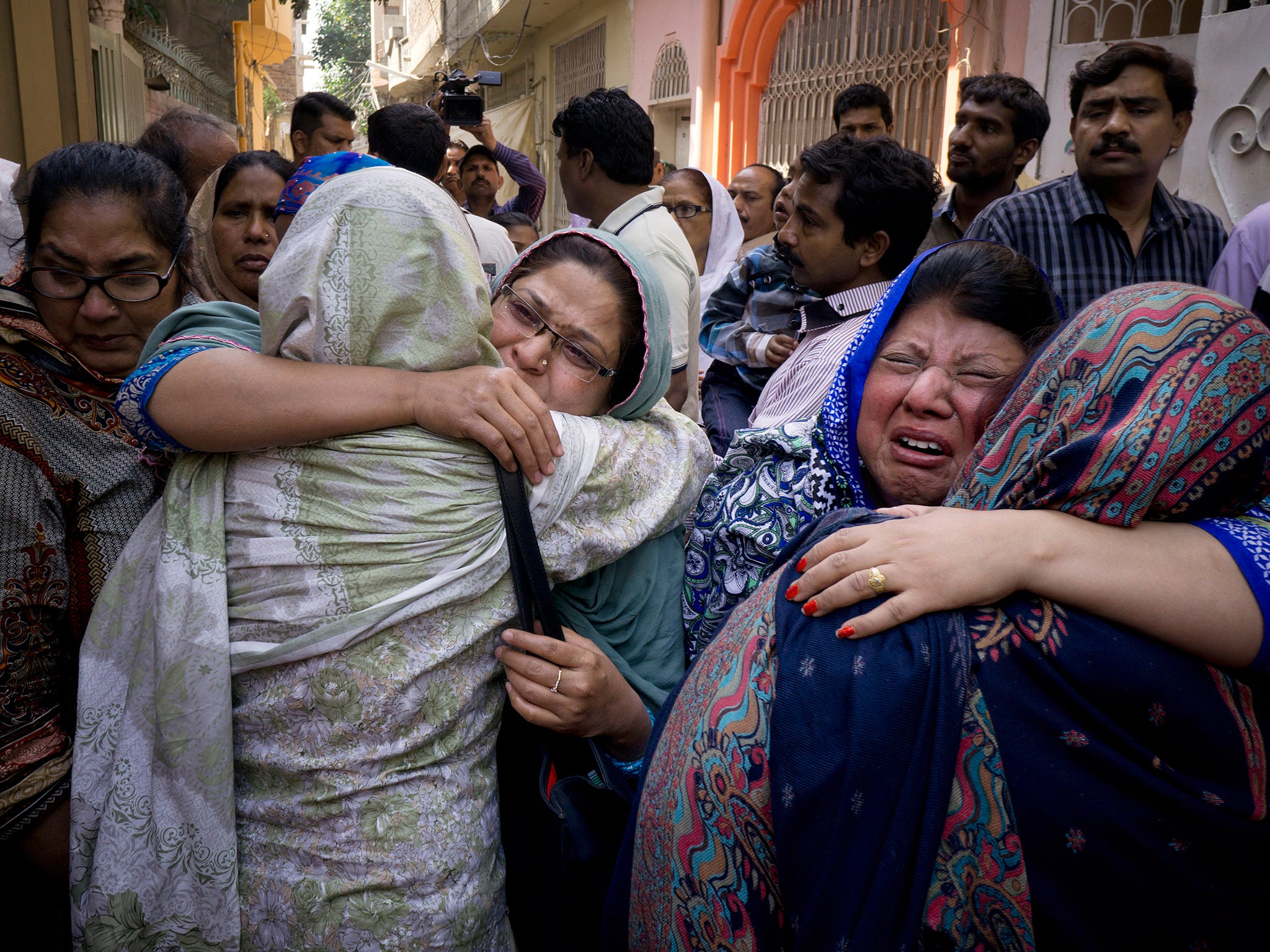Lahore attack: We shouldn't shy away from talking about the persecution of Christians in Pakistan
It's time the outside world reminded the government of Pakistan that it has an obligation to protect religious minorities

The persecution of Christians in the Middle East rightly receives a good deal of attention in the West, not just from churches. To many people, expelling an entire faith from the region that gave it birth seems doubly offensive. However, as the slaughter on Easter Sunday of about 70 people in Lahore shows - the bombers specifically targeted the Christian community although a majority of victims were Muslims - there is not much to choose now between being a Christian in Pakistan and, say, Iraq.
Where the difference does lie is in the foreign reaction. Western governments rain down condemnations on ISIS when it targets Christians in Iraq or Syria. But because Pakistan is an important Western ally, a curious silence reigns when it comes to the persecution of Christians there. Too often in Britain and America, the sectarian nature of these attacks is either ignored completely or mentioned en passant.
It is not as if Sunday’s bombing in Lahore was a bolt from the blue. Last April saw a horrific attack on two churches in Lahore, which killed about 17 people. Another 85 were killed when a suicide bomber targeted a church in Peshawar in 2013.
Of course, various motives dictated the decision of a local Taliban splinter group to blow up the church in Lahore. The Islamist militants clearly wanted to show that their reach extends far beyond the lawless, so-called tribal areas of the northwest and into the heart of the largest and most cosmopolitan city in the country. However, as the Taliban’s own statement of responsibility also showed, a specific hatred of the small Christian minority was also a determining factor.
Michael Nazir-Ali, the Pakistan-born former Bishop of Rochester, has long complained of the apparent indifference of the world and of the government in Islamabad to the plight of Pakistan’s Christians and says they have becoming “sitting ducks for terrorists to do whatever they like”. He believes the government, the courts, the police – the whole state apparatus – are now so intimidated by the threat of Islamist fury that even when they wish to protect Christians from sectarian violence they hesitate to do so. He maintains that hostility to Christians in Pakistan has also become hardwired into the justice system by the infamous blasphemy law, which makes any alleged insult to Islam a capital offence. This leaves small vulnerable communities permanently hostage to the good will of their more numerous Muslim neighbours who can accuse them of blasphemy at the drop of a hat.
It is understandable that Pakistan’s allies have shrunk from pressing the government in the past on such issues, worried that criticism might make Pakistan’s Western ties even more unpopular among ordinary people than they are already. The Americans are desperate to keep Islamabad “on board” and remain terrified by the thought of the country’s possible collapse. Best to say nothing lest it make a bad situation even worse is their guiding principle.
However, it should be clear now that continuing to ignore attacks on Christians - or doing nothing about them except dishing out routine expressions of regret - achieves nothing. Indeed, it seems to have emboldened the Islamists to up the ante. It is good that the authorities in Punjab have had the decency to declare three days of mourning this time. But it is also time for Pakistan’s foreign friends to remind the government openly that the country’s founding principle was the creation of a social democracy based on Islamic ideals, not a persecuting theocracy. It is bad enough that people should have to suffer for their race or religion. What’s even worse is suffering in silence.
Join our commenting forum
Join thought-provoking conversations, follow other Independent readers and see their replies
Comments
Bookmark popover
Removed from bookmarks